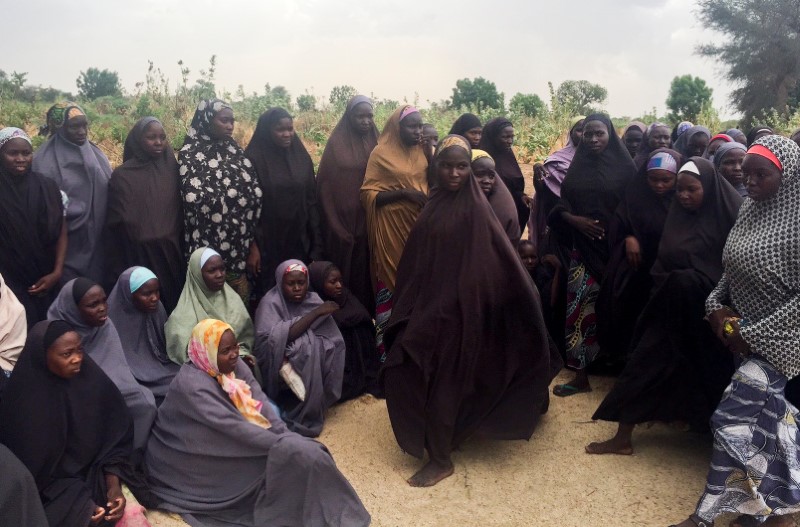
By Katharine Houreld and Maggie Fick
NAIROBI/KISUMU, Kenya (Reuters) – Celebrations broke out in pockets of Kenya on Thursday after the opposition said Raila Odinga should be declared winner of the presidential vote, a claim rejected as “ridiculous” by an election commission official.
An opposition official said information from “confidential sources” showed Odinga had secured victory, contradicting official preliminary results released so far which show President Uhuru Kenyatta had won 54.2 percent of votes, ahead of Odinga on 44.9 percent – a lead of 1.4 million votes with 99 percent of polling stations reported.
International observers on Thursday praised the handling of the election and the European Union mission said it had seen no sign of manipulation during voting.
As they wait for final results to be tallied and confirmed, many Kenyans are nervous of a repeat of the clashes that killed about 1,200 people after the bitterly contested 2007 election.
Musalia Mudavadi, a senior official in the opposition coalition, told reporters information from “confidential sources” at the election commission showed Odinga had secured victory by just under 300,000 votes. He provided no evidence but demanded Odinga be declared winner.
Minutes later, hundreds of Odinga supporters, mainly young men, poured onto the streets of the opposition stronghold of Kisumu in celebration. At least one truck of anti-riot police followed them, a Reuters witness said. Some older men tried to convince the youth not to join the crowds.
There were pockets of similar celebrations in opposition strongholds in Nairobi as well.
After complaining of fraud, Odinga told Reuters he believed most of more than 20,000 polling station result forms uploaded to the election commission’s website were fake.
Odinga said results were being filled out by agents working out of a Nairobi hotel but he did not provide any evidence. He previously said the election commission’s computer network had been hacked and that results were “fictitious”.
A senior official in the election commission rejected the opposition’s claims.
“They have done their own additions and they think Raila has 8 million (votes), which is ridiculous, there is nothing,” Abdi Yakub Guliye said. “As far as we are concerned, we don’t believe they have any credible data.”
Kenyatta, a 55-year-old businessman seeking a second five-year term, and Odinga, loser of Kenya’s last two elections amid similar claims of fraud, are the heads of Kenya’s two political dynasties.
Earlier in the week, Odinga urged his supporters to remain calm but warned: “I don’t control the people.”
NO “MANIPULATION”
In its first assessment of Tuesday’s poll, the European Union’s election observer mission said it had seen no signs of “centralised or localised manipulation” of the voting process.
Marietje Schaake, head of the mission, said the EU would provide an analysis of the tallying process in a later report.
John Kerry, the former U.S. Secretary of State heading the Carter Center observer mission, said the election system, which is ultimately based on the original paper ballots cast, remained solid and all sides should wait for electronic tallies to be double-checked against hard copies.
“The process that was put in place is proving its value thus far,” Kerry said. “Kenya has made a remarkable statement to Africa and the world about its democracy and the character of that democracy. Don’t let anybody besmirch that.”
The election commission said it hoped to have all results centralised by midday on Friday and would announce a winner soon after that. It said there had been an attempt to hack into its system but said it had failed.
Thabo Mbeki, the former South African president in charge of the African Union observer mission, praised the poll so far.
“It would be very regrettable if anything emerges afterwards that sought to corrupt the outcome, to spoil that outcome,” he said.
PROTESTS
Reuters TV footage showed police firing live rounds as they clashed with youths throwing stones in Kawangware slum in Nairobi. One injured or dead person was rushed from the scene in a sack.
But most of the capital and the rest of the country were calm after four people were killed in violence on Wednesday.
Traffic flowed on Nairobi’s usually gridlocked streets but an increasing number of businesses opened.
Earlier in the day, some market stalls and shops had opened in Kisumu and more vehicles were on the street than a day earlier.
A group of men said they were eager for daily life to return and could not afford the consequences of violence in their city, which saw some of the worst clashes a decade ago.
“We don’t want to fight,” said driver Evans Omondi, 28, wearing a polo shirt and jeans. “We want to go back to work.”
In 2007, tallying was halted and the incumbent president declared the winner, triggering an outcry from Odinga’s camp and waves of ethnic violence that led to International Criminal Court charges against Kenyatta and his now-deputy William Ruto.
The cases against them collapsed as witnesses died or disappeared.
(Additional reporting by David Lewis, George Obulutsa, Rajiv Golla and Ed Cropley in Nairobi, Writing by David Lewis; Editing by Janet Lawrence)








